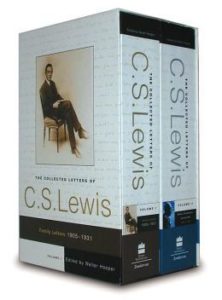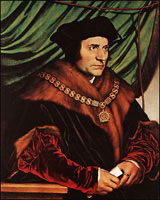 My study of C. S. Lewis’s correspondence has been primarily his letters to Americans. While one of my delightful projects for the future is to read all of his letters, I’ve only grazed the surface of those outside his American connections.
My study of C. S. Lewis’s correspondence has been primarily his letters to Americans. While one of my delightful projects for the future is to read all of his letters, I’ve only grazed the surface of those outside his American connections.
I have noted, though, some of his correspondence with his Catholic friend, Don Giovanni Calabria. The Anglican-Protestant Lewis kept up a lively and friendly interchange with that friend. Some of those letters deal with the divisions in the church universal. Lewis’s commentary on that is thought-provoking.
Is it sin that makes Christians divide into different denominations? Lewis offers this opinion:
That the whole cause of schism lies in sin I do not hold to be certain. I grant that no schism is without sin but the one proposition does not necessarily follow the other.
He then notes that both Catholics and Protestants deplore what some on their respective sides have done, using the friar Tetzel (who sparked Luther’s 95 Theses) and England’s Henry VIII (a Protestant only because he wanted a divorce) as prime examples.
 But some don’t fit that characterization. Two martyrs—Thomas More and William Tyndale—both lost their lives under that same Henry VIII, but for different reasons. What of them?
But some don’t fit that characterization. Two martyrs—Thomas More and William Tyndale—both lost their lives under that same Henry VIII, but for different reasons. What of them?
But what would I think of your Thomas More or of our William Tyndale? All the writings of the one and all the writings of the other I have lately read right through. Both of them seem to me most saintly men and to have loved God with their whole heart: I am not worthy to undo the shoes of either of them.
Nevertheless they disagree and (what racks and astounds me) their disagreement seems to me to spring not from their vices nor from their ignorance but rather from their virtues and the depths of their faith, so that the more they were at their best the more they were at variance.
Lewis, of course, knew all about the Catholic-Protestant schism, having grown up in Northern Ireland. In another letter to Calabria, he tells of a coming holiday in his homeland, leading to more thoughts on the issue:
Tomorrow I am crossing over . . . to Ireland: my birthplace and dearest refuge so far as charm of landscape goes, and temperate climate, although most dreadful because of the strife, hatred and often civil war between dissenting faiths.
How does Lewis view this type of “dissent”?
There indeed both yours and ours “know not by what Spirit they are led.” They take lack of charity for zeal and mutual ignorance for orthodoxy.
I think almost all the crimes which Christians have perpetrated against each other arise from this, that religion is confused with politics. For, above all other spheres of human life, the Devil claims politics for his own, as almost the citadel of his power.
Let us, however, with mutual prayers pray with all our power for that charity which “covers a multitude of sins.”
As someone who has been actively involved in teaching students about government and politics for nearly three decades, I have to admit I don’t like Lewis’s conclusion that this realm of human activity is a special haven for Satan’s devices. I want Christians to know that government is established by God and that it has godly purposes.
However, I have to acknowledge that the Devil certainly knows how to use politics for his goals. Currently, the divide in politics is not between Catholic and Protestant, but between differences of opinion among Christians as to whom we should support in the political arena.
That divide is now beyond the simple liberal vs. conservative stances. Conservatives, after this last presidential election, are more divided than ever over how much, and in what ways, to support the winner.
We should be free to share our views, but in that sharing, we should never lose our charity toward fellow believers.
I like, especially, this caution from Lewis:
Disputations do more to aggravate schism than to heal it: united action, prayer, fortitude and (should God so will) united deaths for Christ—these will make us one.
We must never forget that, regardless of our views on the current state of politics, we are one in God’s kingdom. Lewis’s comment may be prophetic: we may have to suffer together unto death, and that will ultimately show us how petty the differences are compared to what we have in common.
I sincerely hope it doesn’t come to that, but it’s a sobering reminder that we should be focused on the eternal above all else.
